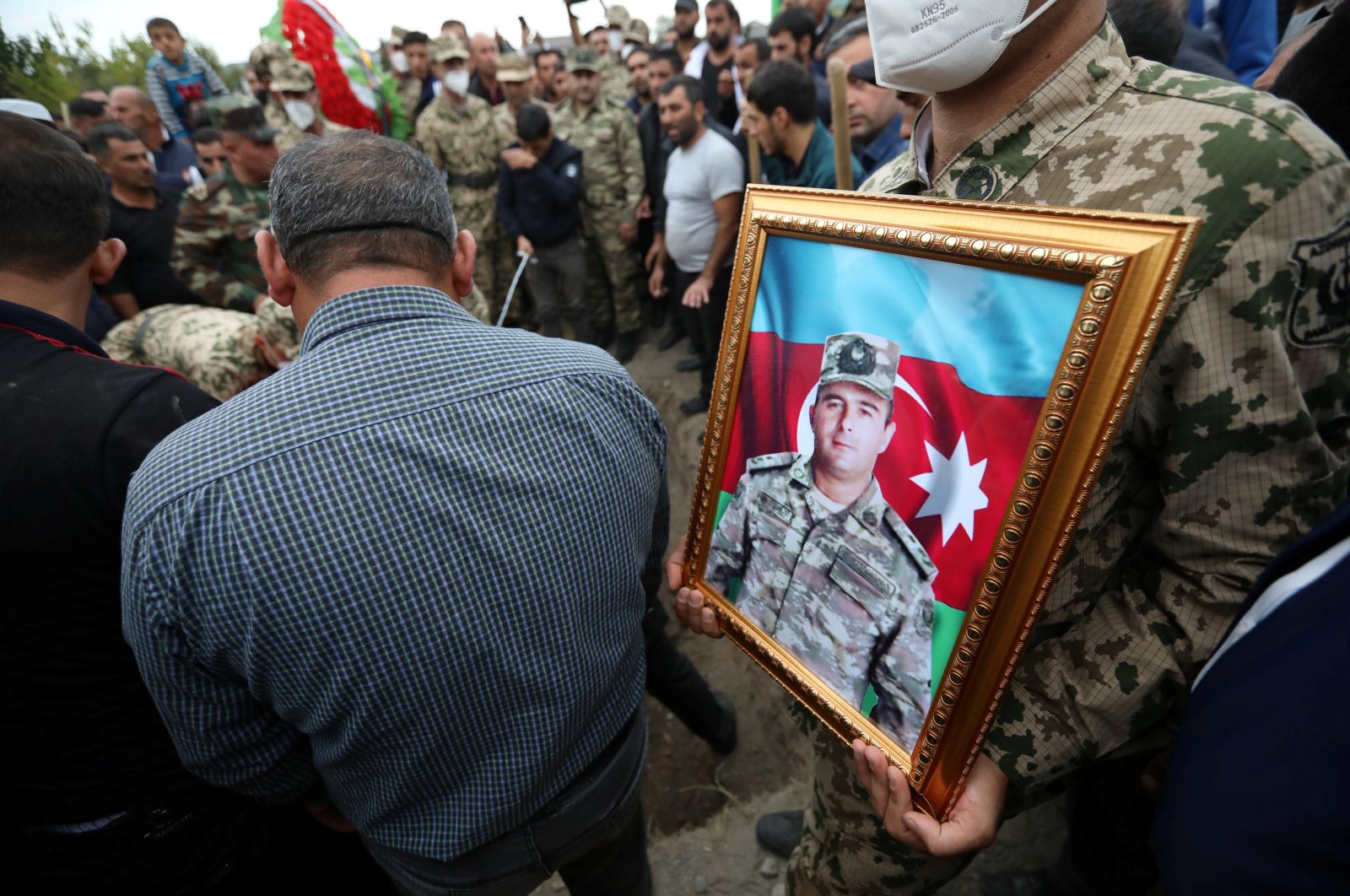
Relations between Iran and Azerbaijan have been tense since the dismantling of the Soviet Union in 1991 despite the two countries’ many historical, cultural, and religious ties.
Iran has ironically been closer to Christian Armenia – Azerbaijan’s rival – than to a fellow Shi’ite majority state. The regional status quo and balance of power shifted in the South Caucasus as a result of the second Karabakh War in 2020, dramatically heightening diplomatic tensions between Azerbaijan and Iran. Indeed, Azerbaijan’s victory in the war and regaining of control over Armenian ethnic enclaves signaled Iran’s diminishing influence and leverage. For many years, Azerbaijan has maintained a close strategic partnership with Israel, Iran’s arch-foe, particularly in the defense field, as it sought to deter radical Shi’ite influence stemming from Iran. Azerbaijan has also drawn closer to Turkey.
Iran has never hidden its intentions to try to recruit non-Iranian Shi’ite communities into its so-called “Axis of Resistance,” a network of non-state actors aligned with Iran that has emerged as a significant force in the Middle East in the last two decades. Iran began its long-term proxy hybrid warfare strategy in the Arab world, focusing on Lebanon, Palestine, and later Iraq, Syria, and Yemen. The push to extend this strategy into the Caucasus is newer.
Iran has sought to extend this network into Azerbaijan and to make inroads into the local Shi’ite community through religious schools known as hawzas as well as more recently, social media tools. In 2013, Iran established the Huseyniyyun – the Islamic Resistance Movement of Azerbaijan – with the ultimate goal of creating a powerful proxy organization in the Caucasus similar to Lebanon-based Hezbollah. The first recruits were six Azerbaijani citizens who went to Syria to defend Shi’ite shrines from Sunni opponents during the civil war against the Iran-allied regime of Syrian President Bashar al-Assad.
General Qassim Soleimani, the then-commander of the Quds Forces, the elite unit of the Iranian Revolutionary Guards Corps (IRGC), personally announced the formation of the new proxy unit in 2017. Since that time, the group has put tremendous efforts into recruiting Azerbaijani nationals to fight in Iraq and Syria within various pro-Iranian militia groups against Sunni militants.
While religious motivations were a driving force for establishing the group, the Azerbaijani government’s frequent crackdowns on radical Shi’ite religious communities on its soil over the past decade have made it difficult for the Huseyniyyun to establish a strong footprint in its homeland. Iran continues to struggle to monopolize Shi’ite influence in Azerbaijan.
However, shortly after the 2020 war, Iran-linked proxy groups, including the Huseyniyyun, flooded Azerbaijani social media with Azerbaijani-language videos promoting their radical religious ideology and calling on local Shi’ites to demonstrate against the government and attack government buildings. The Huseyniyyun sought an opportunity to gain visibility and to influence devout Shi’ites in Azerbaijan in the post-war period. The group tried to benefit from footage on social media showing Azerbaijani servicemen performing public prayers after winning a key battle in the city of Shusha in the Nagorno Karabakh region.
In the aftermath of the war, Iran stepped up agitation against the government of Azerbaijan. In response, Baku launched a mass crackdown on pro-Iranian networks and sympathizers in the country. In November 2022, five people were detained on charges of spying for Iran. This was followed by mass arrests in April 2023. The detainees were accused of providing Iranian security agencies with information detrimental to Azerbaijan’s state security and defense capabilities, specifying the location of military bases and other related information through the Telegram messenger app.
From the Azerbaijani point of view, the destructive actions of pro-Iranian proxy forces in the South Caucasus region could exacerbate regional tensions. Indeed, reactivating the Huseyniyyun was a part of Iran’s broader strategy to intimidate Azerbaijan and push it to downgrade its partnership with Israel. The active role of Azerbaijani nationals within the ranks of the organization is intended to help Iran gain legitimacy among ordinary Azerbaijani Shi’ites.
Despite Iran’s continuous attempts to boost Shi’ite dominance over Azerbaijan, however, the strategy appears to have failed. In September 2023, Azerbaijan took full control over the Nagorno-Karabakh region, vastly strengthening the position of the Azerbaijani government.
Thus the chances of the Huseyniyyun organization becoming a “Caucasian Hezbollah” seem lower compared to the pre-war period, which may explain Tehran’s new enthusiasm to rekindle relations with Azerbaijan and return to the diplomacy track. As a result, Iran appears to have partially abandoned its hybrid warfare strategy against Azerbaijan as it focuses on Arab fronts against Israel in the aftermath of the Hamas attack on Israel and Israel’s retaliation against Gaza.
The original piece was published by the Stimson Center
Fuad Shahbazov is a policy analyst covering regional security issues in the South Caucasus and a former research fellow at the Center for Strategic Studies and senior analyst at the Center for Strategic Communications in Azerbaijan. He was also a visiting scholar at the Daniel Morgan School of National Security in Washington, DC. He tweets at @fuadshahbazov
